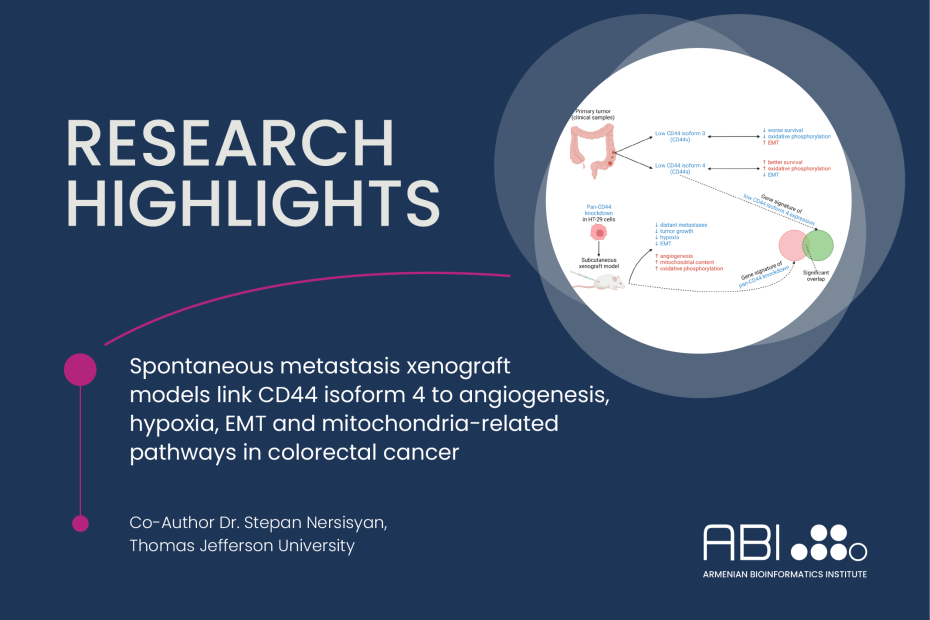In a recent study co-authored by Dr. Stepan Nersisyan, a former research supervisor at ABI, researchers have uncovered crucial insights into how different forms of a protein called CD44 impact the progression and spread of colorectal cancer (CRC).
Colorectal cancer often spreads through the bloodstream, posing a serious threat to patients. The study focused on two versions of the CD44 protein, labeled isoforms 3 and 4, which were found to play key roles in the development of CRC.
Isoform 4 of CD44 was linked to poorer outcomes for patients, as well as changes in the cancer cells that make them more likely to spread. On the other hand, isoform 3 showed the opposite effect, potentially acting as a protective factor.
To test these findings, the researchers reduced the levels of CD44 in cancer cells in the lab. Surprisingly, this not only hindered the growth of the main tumor but also completely stopped the cancer from spreading to other parts of the body in experimental models.
The study also highlighted that isoforms 3 and 4 were more active in certain parts of tumors that were low in oxygen, pointing to a possible connection between the protein and the environment in which the cancer grows.
In simpler terms, this research gives us a better understanding of how specific forms of the CD44 protein influence the behavior of colorectal cancer. These findings could eventually lead to more targeted and effective treatments for CRC, offering hope for improved outcomes for patients.
Link: https://doi.org/10.1002/1878-0261.13535
